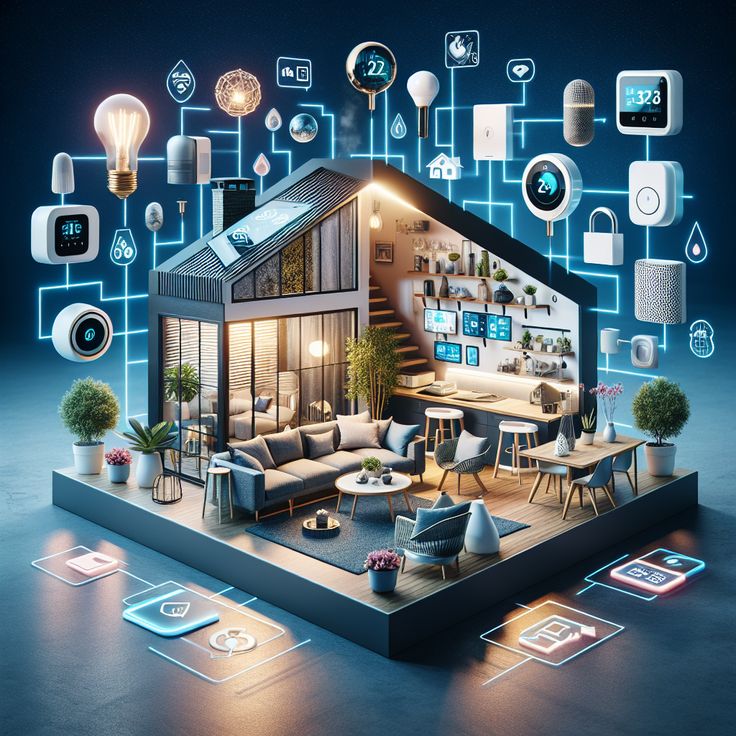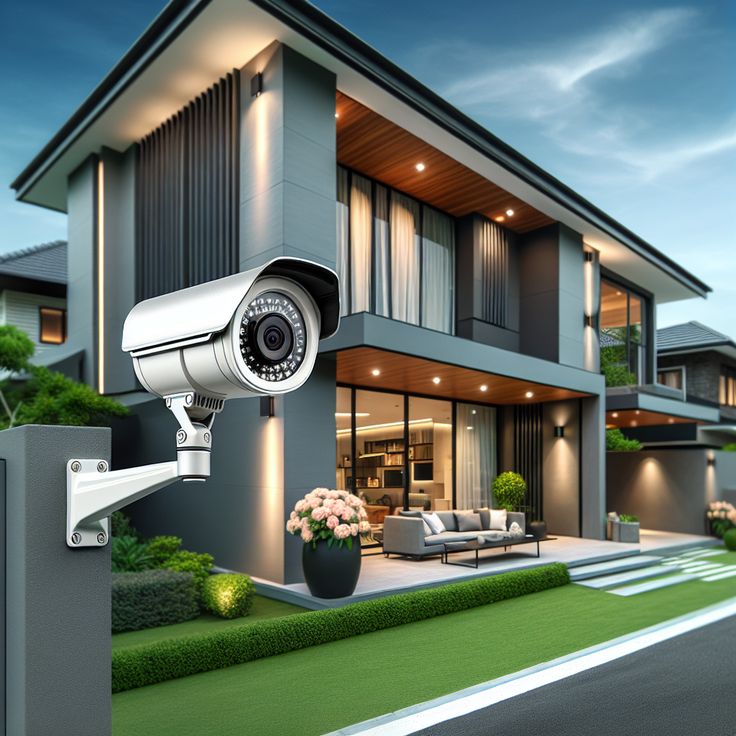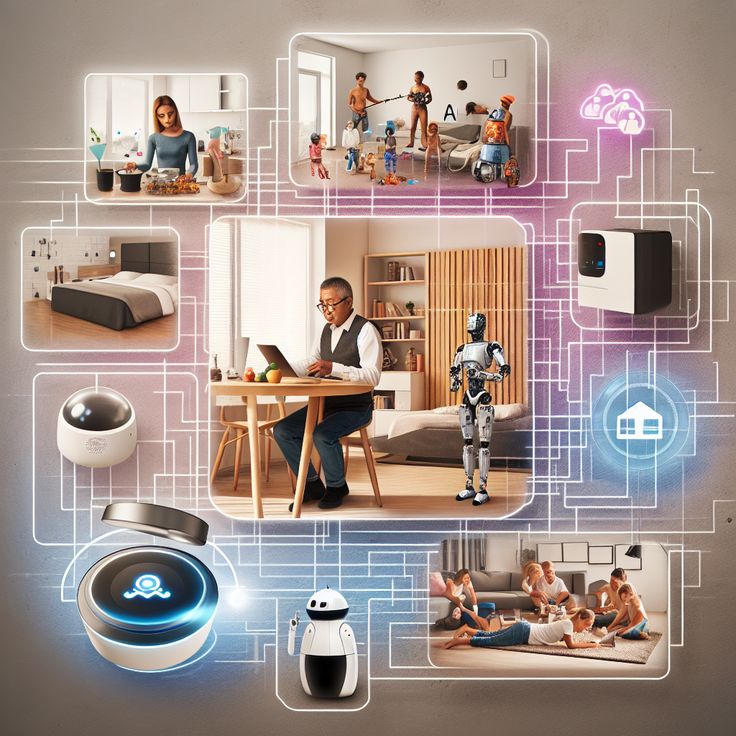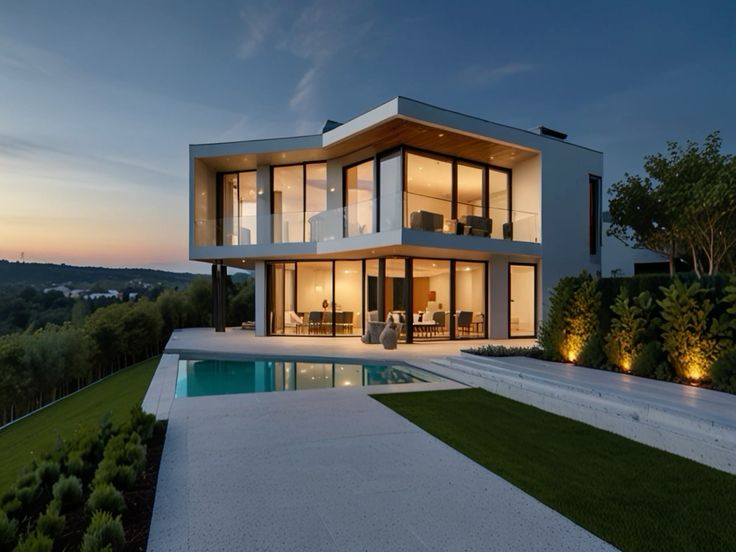In recent years, smart homes have emerged as a game-changing innovation, reshaping the way we interact with our living spaces. By integrating cutting-edge technology, smart homes offer unparalleled convenience, efficiency, and customization, making them a cornerstone of the modern lifestyle. As these advancements continue to evolve, the influence of smart homes extends beyond convenience, creating a significant impact on energy consumption, security, and daily routines.
The Rise of Smart Home Technology

The journey of smart homes began with the advent of interconnected devices, driven by the Internet of Things (IoT). From voice-controlled assistants like Amazon Alexa and Google Home to sophisticated home automation systems, the smart home ecosystem has grown exponentially. These technologies empower homeowners to control lighting, temperature, security cameras, and even kitchen appliances through a single app or voice command. This seamless integration has not only simplified household management but has also paved the way for more efficient resource utilization.
As the adoption of smart home technology continues to grow, manufacturers are focusing on creating more intuitive and user-friendly interfaces. With innovations like machine learning and artificial intelligence, smart devices are now capable of learning user preferences and adapting accordingly. For instance, a smart thermostat can optimize heating and cooling based on your daily schedule, resulting in significant energy savings.
Enhancing Energy Efficiency and Sustainability

One of the most notable advantages of smart homes is their contribution to energy efficiency. Traditional homes often struggle with unnecessary energy consumption due to outdated systems or human oversight. In contrast, smart homes employ advanced sensors and automation to reduce energy waste. For example, smart lighting systems automatically adjust brightness based on ambient light levels or occupancy, while smart plugs can turn off devices when not in use.
Moreover, smart homes promote sustainability by integrating renewable energy sources like solar panels. Coupled with energy storage solutions and real-time monitoring, homeowners can track and optimize their energy usage, reducing their carbon footprint. Governments and organizations worldwide are encouraging this transition by offering incentives for adopting energy-efficient technologies, making smart homes an attractive option for environmentally-conscious individuals.
Revolutionizing Home Security

Safety is a top priority for homeowners, and smart home technology has elevated security to new heights. Modern security systems include features like motion detectors, smart doorbells with video capabilities, and remote access to surveillance cameras. These advancements allow homeowners to monitor their properties in real-time, providing peace of mind whether they’re at home or away.
Additionally, smart locks and biometric authentication systems offer enhanced protection against unauthorized access. Unlike traditional locks, these systems are nearly impossible to bypass without proper credentials. Alerts and notifications further ensure that homeowners are immediately informed of any suspicious activity, enabling swift action.
Improving Daily Convenience

Smart homes are not just about efficiency and security; they also prioritize convenience. From voice-controlled lighting to automated coffee makers, these technologies simplify everyday tasks, saving time and effort. Smart kitchens, equipped with appliances that can suggest recipes based on available ingredients, are transforming how we prepare meals. Similarly, robotic vacuum cleaners and lawnmowers take care of mundane chores, allowing homeowners to focus on more meaningful activities.
The entertainment experience in smart homes has also been revolutionized. Home theaters with integrated sound systems and smart TVs provide a cinematic experience, while multi-room audio systems ensure uninterrupted music across the house. These innovations make smart homes the ultimate hub for relaxation and leisure.
Overcoming Challenges in Smart Home Adoption
Despite the numerous benefits, smart homes face certain challenges that need to be addressed. Privacy concerns are a major issue, as interconnected devices can potentially be exploited by cybercriminals. Manufacturers are working on enhancing security measures, such as encrypted communication and regular software updates, to mitigate these risks.
Another challenge is the high initial cost of smart home systems, which can be a deterrent for some homeowners. However, as technology advances and economies of scale come into play, these costs are expected to decrease, making smart homes more accessible to a broader audience.
The Future of Smart Homes
The future of smart homes looks promising, with emerging technologies like 5G and edge computing set to further enhance their capabilities. These advancements will enable faster data processing and more reliable connectivity, ensuring seamless integration of multiple devices. Additionally, the rise of smart cities will complement the growth of smart homes, creating a more interconnected and sustainable urban environment.
Personalization will also take center stage in the evolution of smart homes. AI-driven systems will offer tailored solutions, from custom lighting moods to predictive maintenance of appliances. This level of customization will redefine comfort and convenience, making smart homes indispensable in modern living.
Smart homes are revolutionizing the way we live, offering a perfect blend of technology, efficiency, and convenience. As these innovations continue to evolve, they hold the potential to redefine modern living, making our homes smarter, safer, and more sustainable. Embracing this technology not only enhances our daily lives but also contributes to a more energy-efficient and environmentally-conscious future.

